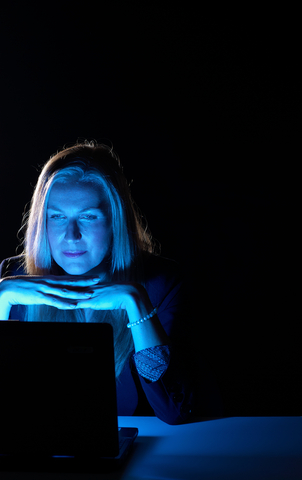“Bodies have their own light which they consume to live: they burn, they are not lit from the outside.”
― Egon Schiele
There are those of us who crave the light. And those who crave the darkness. Yet, disrupting the yin/yang that exists between the balance that defines the framework for these differences can wreak significant havoc on the body. In a review published online this week in Endocrine Reviews, Ohio State researchers have examined the effects of night light on the body’s circadian clock. And the results are not pretty.
Obesity has become a global problem and in the U.S. alone, numbers of people who qualify as obese (BMI>50) increased by as much as 75% between the years 2000 and 2005. Concurrent with this change has been the explosion in the use of electric light at night, which has bolstered the ability to self set the sleep/wake cycle. And while economically, this may be an attractive proposition, light at the wrong time of day, that is, light that disrupts the body’s natural circadian rhythm can lead to cancer, disrupt sleep, interfere with mood, impair cognition and perhaps most importantly, interfere with the metabolism. Data show that the increase in exposure to light tracks pretty closely to the eruption of global obesity and metabolic disorders. Moreover, even dim light (think: light from mobile devices) has been shown to alter circadian genes, especially those involved in nutrition and metabolism, affecting hunger and appetite. More troubling is the fact that the researchers say that this disruption is reciprocal, so, while interfering with the body’s circadian rhythm can lead to obesity, the metabolic changes that results in turn, alter circadian rhythms. This endless loop may be a key reason why so many of us are gaining weight. Other key factors include disruption in melatonin levels (which affects sleep pattern) and cortisol levels (related to stress), and unfortunately, these changes can occur through exposure to low light levels at the wrong time of day.
For all intent and purposes, modern society is a 24 hour society. Researchers say that over 99% of the US and Europe is exposed to urban light pollution and many people bring light into their homes at night, watch TV late night and use computers just prior to and in bed. They add that two-thirds of the population experience social ‘jet lag,’ a term coined to describe the habit of following different sleep schedules on the weekdays and weekends. And, the issue is an environmental one as well; the health of plants and animal species are affected by artificial light at night.
The solution may be to start to bring back the dark . Use black out curtains or shades, turn off hallway lights and keep the computers and phones out of the bedroom. Try to maintain a regular sleep schedule. And be mindful of when and how often you are eating at ‘irregular hours.’ Mostly, however, pay attention to your habits and see what changes can be made. There are many factors that contribute to obesity but it appears that for many of us, one of the most important might be nighttime light exposure.
As Schiele so aptly points out, we have our own light that does not require outside illumination, at least not at certain times of the 24 hour period that makes up a healthy, balanced life.







